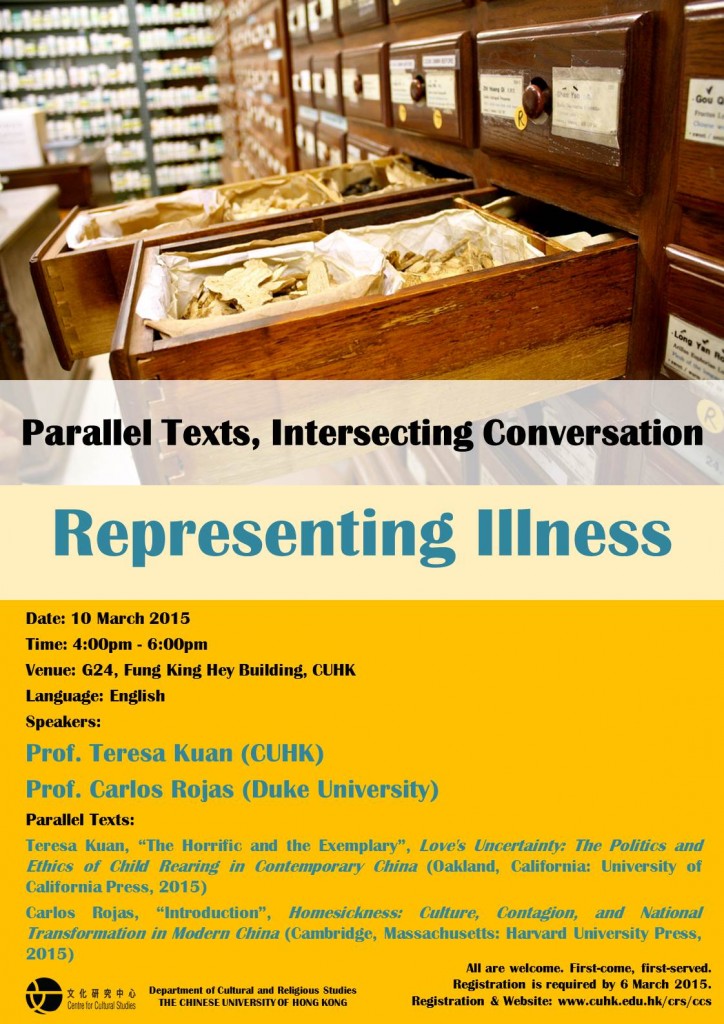Date: 10 March 2015
Time: 4:00pm – 6:00pm
Venue: G24, Fung King Hey Building, CUHK
Language: English
Registration: http://goo.gl/forms/ok27hM8Jb0
Speakers:
Prof. Teresa Kuan (CUHK)
Prof. Carlos Rojas (Duke University)
Moderator:
Prof. Pang Laikwan (CUHK)
Parallel Texts:
Teresa Kuan, “The Horrific and the Exemplary”, Love’s Uncertainty: The Politics and Ethics of Child Rearing in Contemporary China (Oakland, California: University of California Press, 2015)
Carlos Rojas, “Introduction”, Homesickness: Culture, Contagion, and National Transformation in Modern China (Cambridge, Massachusetts: Harvard University Press, 2015)
Love’s Uncertainty explores the hopes and anxieties of urban, middle-class parents in contemporary China. Combining long-term ethnographic research with analyses of popular child-rearing manuals, television dramas, and government documents, Teresa Kuan bears witness to the dilemmas of ordinary Chinese parents, who struggle to reconcile new definitions of good parenting with the reality of limited resources. Situating these parents’ experiences in the historical context of state efforts to improve “population quality,” Love’s Uncertainty reveals how global transformations are expressed in the most intimate of human experiences. Ultimately, the book offers a meditation on the nature of moral agency, examining how people discern, amid the myriad contingencies of life, the boundary between what can and cannot be controlled.
In Homesickness, Carlos Rojas examines an array of Chinese literary and cinematic tropes of illness, arguing that these works approach sickness not solely as a symptom of dysfunction but more importantly as a key to its potential solution. Rojas focuses on a condition he calls “homesickness”—referring to a discomfort caused not by a longing for home but by an excessive proximity to it. The product of a dialectics of internal alienation and self-differentiation, this inverse homesickness marks a movement away from the “home,” conceived as spaces associated with the nation, the family, and the individual body. The result is a productive dynamism that gives rise to the possibility of long-term health. Without sickness, in other words, there could be no health. Through a set of detailed analyses of works from China, Greater China, and the global Chinese diaspora—ranging from late-imperial figures such as Liu E and Zeng Pu to contemporary figures such as Yan Lianke and Tsai Ming-liang—Rojas asserts that the very possibility of health is predicated on this condition of homesickness.
All are welcome. First-come, first-served.
Registration is required by 27 Feb 2015.

